A2 Key Speaking
In 2020, Cambridge Assessment English made some changes to the exam and there are big differences in the A2 Key Speaking paper as well. It is very important for teachers and students to know and understand these new tasks so you can prepare in the right way and take the exam with confidence.
There are still two parts in A2 Key Speaking, but they are not the same as before:
1. Introductory phase – The examiner asks the candidates in turn for some factual information, for example, questions about their daily lives, likes and dislikes, hobbies, friends and family, school or work, etc.
2. Collaborative task – The candidates work together and discuss different pictures that belong to one topic plus there is a follow-up discussion that the examiner moderates.
How does A2 Key Speaking work?
Every candidate should have the same experience when they take the Speaking exam in Cambridge A2 Key. Before your exam starts, you have to arrive at the test location a little bit earlier so you can register.
At the registration, Cambridge check your identity and you receive your mark sheet. You need to fill in your details (name, etc.) because you have to give this piece of paper to the examiner at the beginning of your test.
You will never have to take the exam alone. This test is always done in pairs (in the last group of the day there might be three candidates) and there are always two examiners in the room with you. One of them is called the interlocutor (the person who asks all the questions and talks to the candidates) and the other one is the assessor (the examiner who checks your language and gives you your marks).
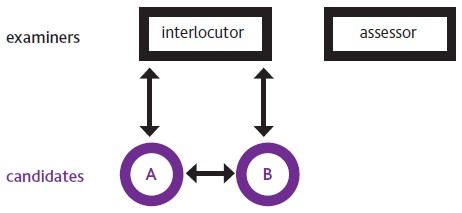
Last but not least, the test takes between 8-10 minutes depending on the number of students (pairs or groups of three) and how long or short your answers are.
Below, you can watch an example test with two candidates, Greta and Tommaso so you can see everything in action.
What is difficult about A2 Key Speaking?
There are definitely a few problems with the Speaking test that I can often see in my own students. I’m going to show you now what these difficulties are so you can avoid the same mistakes in your own exam.
If you have experienced other problems in your practice, let me know in the comments below and I can give you advice.
Candidates don’t understand the questions
This is probably the most common problem I have experienced as a teacher. It happens pretty often that a candidate doesn’t understand the question because the examiner speaks a little bit too fast or just because there are one or two difficult words in the question that the candidate doesn’t know.
In this situation, don’t be shy. You can always ask the examiner to ask the question one more time. However, be polite and ask in a friendly way, for example, say, “I’m sorry. Could you repeat that, please?”. At the end of this article, I’m going to give you more examples and other useful language for A2 Key Speaking.
Candidates don’t know what to do
This problem is something that I don’t understand. It can happen that a candidate doesn’t prepare enough and when the exam starts, they don’t know how the tasks work and what they have to do.
If you want to take A2 Key, practise and prepare as much as possible. There is a lot of information online or you can take classes at a local language school and you shouldn’t have a problem with that.
The best option for you, however, is to keep reading. 🙂
Candidates freeze
This might be the hardest problem to avoid, but it is possible.
Unfortunately, some candidates are in the middle of their test when they suddenly don’t know what to say anymore. They ‘freeze’ and can’t say anything.
This can have different reasons, but the most common one is that some students don’t know enough useful language or need more vocabulary in general.
My advice is to study expressions that you can use in the exam but also to work on your grammar and vocabulary outside of class or your exam preparation. Try to read or listen to something in English for a few minutes every day and your grammar and vocabulary will improve automatically.
Also, have a look at this list of topics that you might find in A2 Key Speaking so you can think about what you already know and which of them you need to practise a little bit more.
- Clothes
- Daily life
- Entertainment and media
- Food and drink
- Health, medicine and exercise
- Hobbies and leisure
- House and home
- Language
- People
- Personal feelings, opinions and experiences
- Personal identification
- Places and buildings
- Services
- Shopping
- Social interaction
- Sport
- The natural world
- Transport
- Travel and holidays
- Weather
If you still freeze in the exam, don’t panic, take a deep breath and think back to the question. If you have to, you can just start your answer again and your idea usually comes back to you.
However, if you can’t remember what you wanted to say, don’t worry about it too much. There are many more questions for you in the test so one short answer won’t ruin your whole exam result.
Tips and strategies for A2 Key Speaking
In this part of the article, I’m going to show you what you should or shouldn’t do during the Speaking test if you want to get high marks.
As the two parts are very different, there are also different things that you need to remember.
Part 1
In Part 1, the examiner talks to each candidate individually so you don’t talk to the other candidate but only with the examiner. They usually ask you for your name and where you are from and then they might ask you about a couple of topics from the list that I gave you earlier.
It is important for you to give full-sentence answers so, for example, if the examiner asks you where you are from, you should could say, “I’m from Barcelona, the second largest city in Spain”, or, “I come from Hamburg which is in the north of Germany”.
You can also give some extra information like reasons or examples, but the most important thing is to make full sentences in every answer you give.
Let’s have a look at another example. This time we are going to watch Asia and Vittoria do Part 1 of the A2 Key for Schools Speaking test.
Generally speaking, both candidates do a pretty good job. They both give full-sentence answers and they answer exactly what the examiner asks.
They could give more information in some of their answers like examples and reasons why they do or like certain things, but it is not bad.
Their language is also OK, but they make some typical mistakes, for example, they both confuse fun and funny or Asia says, “I have 12 years old”, instead of saying ‘I am 12 years old’.
When you prepare and practise for the test, always think about vocabulary that you can use for the different topics we looked at earlier. This can help you add more information to your answers and make them more interesting.
Part 2
Part 2 is very different from Part 1. You have to interact with your partner(s) and discuss different pictures before the examiner asks you a few extra questions about them.
The pictures might look like the ones below. Note that there is always a question at the top. This is the question you have to ask and answer for each picture with your partner.
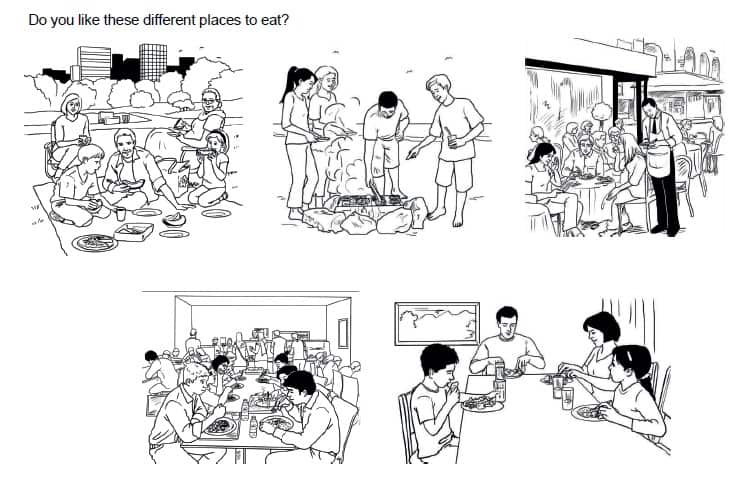
When you discuss the pictures, it is important to ask your partner good questions and to give your opinion. Again, you should always give full-sentence answers and also use reasons and examples to give more information.
Let’s see how Asia and Vittoria do this first phase of Speaking Part 2.
At the beginning, Asia has some problems with asking questions, but it gets better. Vittoria does a better job and feels more confident.
Both of them could give a little bit more detail because some of their answers are too short. Again, always add extra information. I know I’ve already said this three times, but it is super important.
All in all, they work together and they also answer the examiners extra question well without waiting too long.
Then, in the second phase of Part 2, the examiner asks you a little more about the topic, but the questions are not directly about the pictures anymore. Here, you go back to interacting with the examiner instead of your partner.
The idea, however, is still the same: full-sentence answers with extra information. Let’s check the video again and watch the last phase of Asia and Vittoria’s test.
Asia and Vittoria do a very good job answering the examiner’s questions. They both say why they enjoy being by the sea or in the mountains. Vittoria adds that she goes to the mountains every summer and Asia mentions that she likes the sea because it is fun for her.
Both candidates prefer doing sports with other people because it is more interesting (Asia) and more fun (Vittoria).
In my opinion, this might be their strongest phase of the test because their answers are complete and they don’t have to think about them a lot. It feels very natural and that makes a good impression.
Useful language for A2 Key Speaking
The easy part for me as teacher is to explain to my students what they have to do in each part A2 Key Speaking, but the harder part is to make them use good language.
Because of this I would like to give you some good expressions which you can use in your exam.
As you know now, the key to good marks are complete answers and giving your opinion well. Below, you will find what you need.
- Giving reason
- because
- because of + -ing/noun
- since
- as
- Giving examples
- for example
- such as
- for instance
- like
- Expressing a result
- so
- to
- in order to
- for + -ing
- Expressing contrast
- but
- although
- even though
however - on the other hand
- Giving your opinion
- In my opinion, …
- I think/believe/feel …
- For me, …
- I would say …
Summary
In this article, we looked at everything you need to know if you want to pass Cambridge A2 Key Speaking. We checked different examples, examined the different parts of the test and I gave you some useful expressions that can make your answers a lot better.
Now you can take all of this and practise and I hope this article will help you with it.
Lots of love,
Teacher Phill 🙂


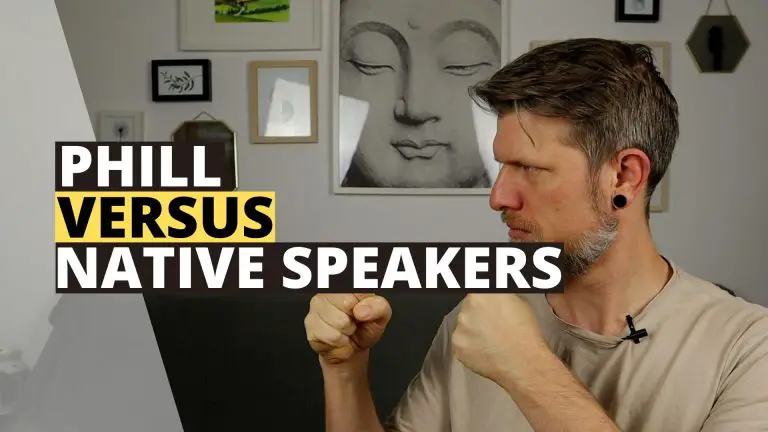
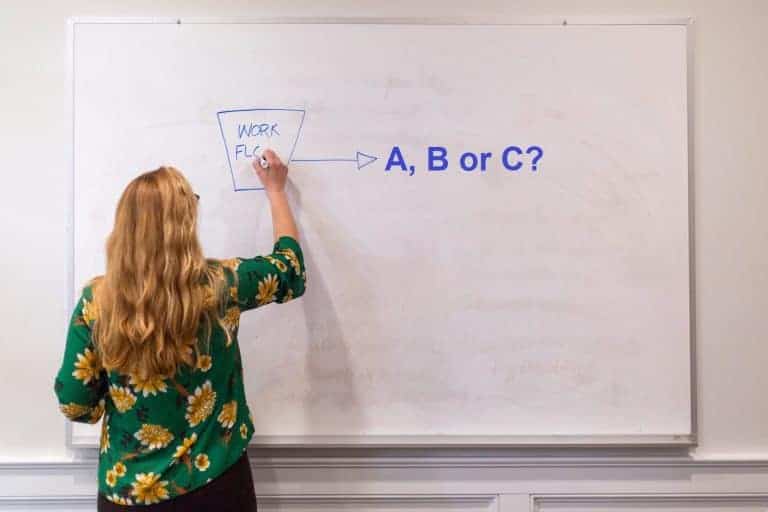



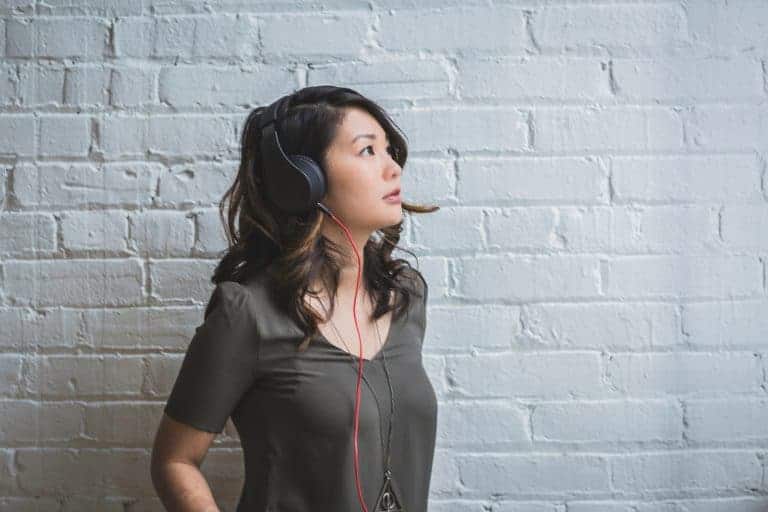
Thank you so much for this tip. Will surely help my students.
Thank you so much!
Hi Tatyana,
You’re very welcome. 🙂
Hello Phill,
Could you please tell me how KET speaking exam is assessed, what criteria and how to generate the score.
Thanks in anticipation.
Best, Osato.
Hi Osato,
It would be a little bit too much information for me to give you here, but you can definitely follow the link below to get some official input from Cambridge. There are also example speaking exams on YouTube that might help you.
https://www.cambridgeenglish.org/exams-and-tests/key/exam-format/
I hope this helps.